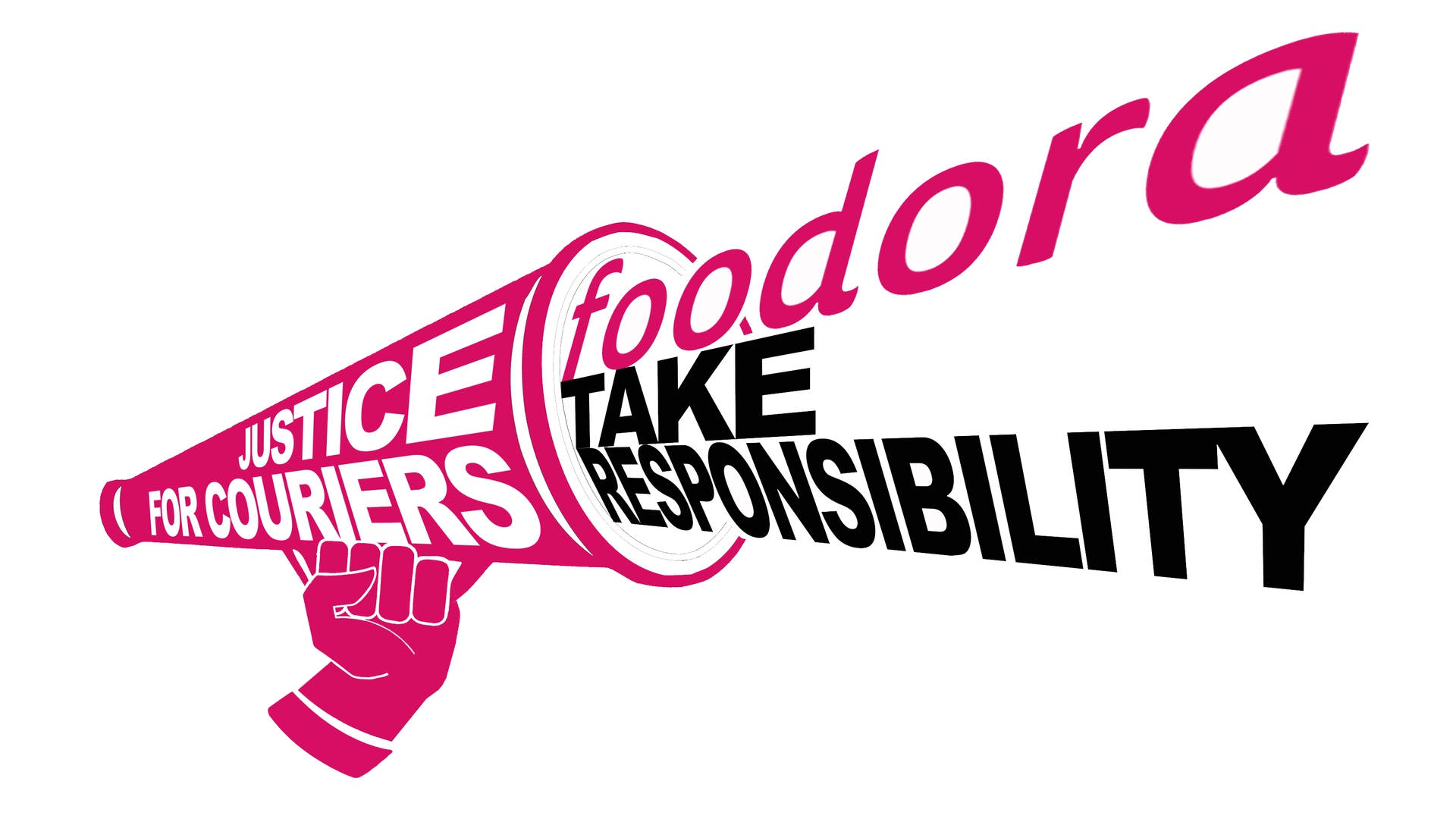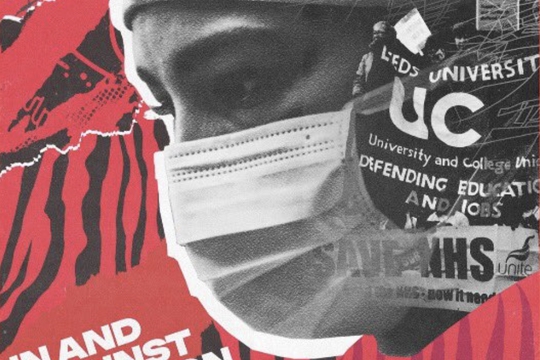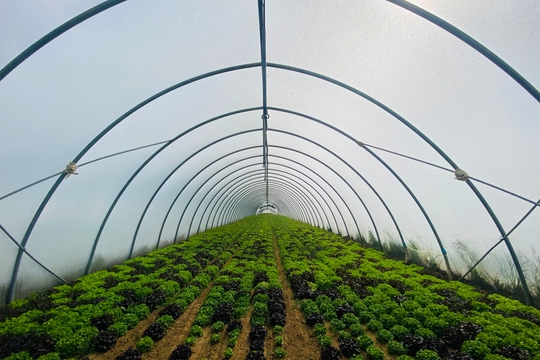Justice for Couriers: An interview with a Finnish Foodora worker
by
Callum Cant (@CallumCant1),
Marcus Nicolson
November 2, 2018
Featured in The Transnational Courier Federation (#5)
‘We’re just hoping to forward with more direct action on the streets’

inquiry
Justice for Couriers: An interview with a Finnish Foodora worker
‘We’re just hoping to forward with more direct action on the streets’
In October food platform workers from 12 states and 34 organisations met in Brussels for the founding meeting of the Transnational Federation of Couriers. This federation will represent platform workers across borders and lead a coordinated fight for better conditions in the sector. During the meeting, we interviewed a number of workers from across Europe to get a better understanding of the dynamics of the struggle.
Callum Cant is a Notes from Below editor
Marcus Nicolson is a Foodora rider from Helsinki
What is the current situation in Finland?
Well currently we’re six weeks into our campaign, for improving working conditions for freelance workers in Foodora. We’ve had a lot of media attention, we’ve focused a lot of our work on social media and press releases. We’ve had stories in the biggest newspaper in Finland several times, we’ve had various other newspaper articles which are coming out just now, and we’re about to launch a boycott at the start of November.
So what does your campaign consist of?
We launched a demonstration on the first day, which was the sixth of September. There were about 20 people in the middle of Helsinki, which is the biggest city for Foodora in Finland. We sent a list of five demands to Foodora HQ:
1) Repeal the recent pay cuts
Contrary to what Foodora claims, freelancers cannot earn more with the new pay system, which effectively is a pay cut. The removal of kilometer-based allowances and parking benefits further cuts the pay of car drivers.
Foodora must return, at the very minimum, to the old pay system for freelancers including the reinstallment of kilometer-based allowance and Easypark OR to a model which equals or supersedes the total pay of the previous agreement with an UTR of 2. The absence of kilometer-based allowance can only be compensated with an additional +1e/h and the absence of Easypark can only be compensated by Foodora taking responsibility for the potential parking fines.
2) More humane and transparent shift allocation, with possibility to guaranteed hours for freelancers
Foodora freelancers are divided into four “batches” according to their bi-weekly “performance” as determined by an algorithm. Shifts are made first available to the first batch, who gets first pick, while the last batch chooses from what shifts are left, if any. If freelancers do not continually take shifts, miss shifts due to sudden illness or other factors determined by the algorithm, their “batch” position falls and it becomes more difficult to get shifts in the future.
Foodora must return to system of shift allocation, which does not penalize freelancers for illness or unpaid leave, and offer the possibility of some guaranteed hours for freelancers.
3) Reinstate the rider space for couriers and drivers
In the past, Foodora had a common space where couriers could leave their belongings during the shift, eat, use the toilet, warm up, change clothes, store belongings and repair their bikes. These are essential to the work of the courier.
4) Some form of compensation for the maintenance of necessary equipment and guarantees/insurances for accidents and cases of illness for freelancers
Freelancers are responsible for providing and maintaining their bicycles or cars and necessary equipment like phones. Foodora must offer some form of compensation for the maintenance of work equipment and compensate work-related phone calls couriers need to make. A major problem for freelancers is the precarity caused by any lack of security in cases of accidents or sickness. If a freelancer cannot do a shift, because they get sick or are in an accident, they lose income—even if they are not punished by the batch system.
5) Possibility to get an employment contract for at least long-term freelancers
Those who have worked long at Foodora, should be given the possibility of becoming employed (with a part-time contract). This was the case in the beginning, when Foodora offered employment contracts for couriers, and this option should be returned. An employment contract would address concerns of security and guaranteed hours (demands 2 and 4) more comprehensively.
We estimate there about 130 Foodora workers in total in Helsinki. Only ten of those have contracts, the rest are all freelancers, mostly car drivers.
Right now you’re going through an organising phase. What is your end goal?
The core group of the campaign really want to get employment status for the freelance workers, even if it led to something like a zero hour contract it would be a vast improvement on what people have just now - in terms of accident insurance, sick pay, and just all sorts of basic rights.
They also have no social space which is pretty bad in the winter between orders, when temperatures can reach minus 20 and you have nowhere to go.
What is the situation like for migrant platform workers in Helsinki?
Over 90% of the workforce are migrants. They are not aware of their employment rights. They are in a particularly vulnerable situation. the company is using that to their advantage, to avoid giving them the things that would be expected, they’re shirking their responsibilities by giving them these sham freelance contracts and then continually taking things away from them - the most recent pay cut happened in July this year.
Of that 90%, what’s the split between EU and non-EU?
I would say, predominantly non-EU. In Finland there are a lot of Estonians and also Russians who come across. The biggest competitor to Foodora is called Wolt, and its exactly the same situation, they’re a Finnish company and we’ve heard they actually have worse conditions because they are only on a per drop rate of €3.
What has been the role of other movements across Europe in influencing you?
We’ve got a lot of inspiration from them. Especially the IWW and IWGB in the UK. When I’ve been back home in Scotland I’ve met workers from Glasgow to talk about the action they’ve been taking. We’re just hoping to take all this from this conference and move forward with more direct action on the streets.
One of the biggest problems for us is to get people on the streets, because Finland isn’t a country where people like to complain, it’s viewed as something disrespectful if you get on the streets - that’s what we have to turn around, to publicly talk about working conditions and get support behind us.
We also have the support of big trade unions, last week there was a publication by SAK, the biggest trade union in Finland, basically saying that platform workers need to be protected and that they should be considered as employees. This is a big deal for us.
We’re part of PAM, the service sector trade union and we’d love to coordinate strike action with other PAM members but so far that hasn’t happened. We are really encouraging all Foodora workers to join an official union.
Featured in The Transnational Courier Federation (#5)
Subscribe to Notes from Below
Subscribe now to Notes from Below, and get our print issues sent to your front door three times a year. For every subscriber, we’re also able to print a load of free copies to hand out in workplaces, neighbourhoods, prisons and picket lines. Can you subscribe now and support us in spreading Marxist ideas in the workplace?
Read next


